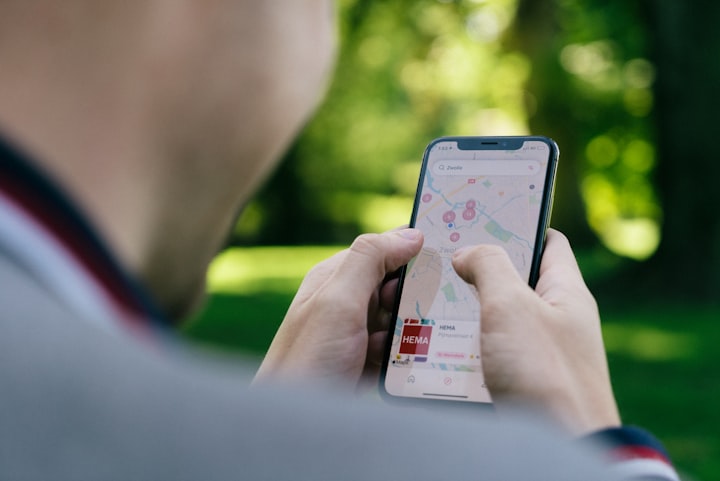
In 2007, the world of technology was forever changed with the introduction of the iPhone. It was a revolutionary device that combined a phone, an internet browser, and an MP3 player all in one. At the time, it was the most advanced smartphone on the market, and it quickly became a status symbol for tech-savvy consumers. However, its success also marked the beginning of the end for one of its main competitors, BlackBerry.
BlackBerry was once the king of the smartphone market, with its secure messaging service and physical keyboard making it a favorite among business professionals. At its peak in 2009, BlackBerry had a 50% share of the smartphone market in the United States. However, the introduction of the iPhone marked the beginning of the end for BlackBerry.
One of the key factors that led to BlackBerry's downfall was its inability to adapt to the new touchscreen interface that the iPhone introduced. BlackBerry's physical keyboard had been its signature feature, but it quickly became outdated in the face of the iPhone's intuitive touchscreen. BlackBerry's attempts to compete with the iPhone by introducing its own touchscreen devices were met with lukewarm reception from consumers.
Another factor that contributed to BlackBerry's decline was its lack of a robust app ecosystem. The iPhone's App Store allowed developers to create and distribute their own apps, which led to a wealth of innovative and useful applications being developed. In contrast, BlackBerry's app ecosystem was limited, and many of its apps were outdated or lacked the functionality of their iPhone counterparts.
Perhaps the most significant factor in the iPhone's dominance over BlackBerry was Apple's marketing strategy. Apple marketed the iPhone as a lifestyle product, rather than simply a smartphone. Its sleek design and advanced features made it a must-have accessory for tech-savvy consumers, and Apple's carefully crafted advertising campaigns helped create a sense of exclusivity around the product. In contrast, BlackBerry's marketing was aimed primarily at business professionals, and it failed to capture the attention of mainstream consumers.
Despite its decline, BlackBerry has continued to innovate in the smartphone market. In recent years, it has shifted its focus to software and security services, and it has found success in this area. However, the rise of the iPhone marked the end of an era for BlackBerry, and it serves as a cautionary tale for companies that fail to adapt to changing market trends.
The iPhone's success was not only due to its innovative design and advanced features, but also to its seamless integration with Apple's ecosystem. The iPhone was designed to work seamlessly with other Apple products such as the Mac, iPad, and Apple Watch, which created a loyal customer base that was eager to upgrade to the latest Apple products. In contrast, BlackBerry's ecosystem was limited, and it lacked the integration and cross-platform compatibility that Apple offered.
Another factor that contributed to BlackBerry's decline was the emergence of Android smartphones. Android offered a more open platform than iOS, which allowed for greater customization and flexibility for both users and developers. This led to a proliferation of Android devices from a wide range of manufacturers, which further eroded BlackBerry's market share.
BlackBerry's decline was also exacerbated by its leadership's complacency and reluctance to innovate. The company's co-CEOs, Mike Lazaridis and Jim Balsillie, were resistant to change and believed that their existing business model was sufficient. They failed to recognize the significance of the iPhone and dismissed it as a niche product that would not appeal to BlackBerry's core customer base. This lack of vision and strategic foresight ultimately led to the company's downfall.
In contrast, Apple's CEO Steve Jobs was a visionary leader who was willing to take risks and push the boundaries of what was possible. Jobs had a clear vision for the iPhone and was willing to invest in research and development to create a product that would revolutionize the smartphone industry. Jobs also had a knack for marketing and branding, which helped create a strong emotional connection between consumers and the iPhone.
The story of how the iPhone crippled BlackBerry is a cautionary tale for companies in any industry. It highlights the importance of innovation, adaptation, and strategic foresight in a rapidly changing market. Companies that fail to recognize the significance of new technologies and changing consumer preferences risk becoming obsolete, as BlackBerry did. On the other hand, companies that are willing to take risks, innovate, and invest in the future are more likely to thrive and succeed in the long run.
In conclusion, the introduction of the iPhone was a game-changer for the smartphone industry, and it marked the beginning of the end for BlackBerry's dominance in the market. BlackBerry's inability to adapt to the touchscreen interface, its lack of a robust app ecosystem, and its marketing missteps all contributed to its decline. However, the lessons learned from BlackBerry's downfall have helped shape the future of the smartphone industry and serve as a reminder of the importance of innovation and adaptation in the ever-evolving world of technology.
About the Creator
9FunFacts
belief in or acceptance of something as true.






Comments
There are no comments for this story
Be the first to respond and start the conversation.